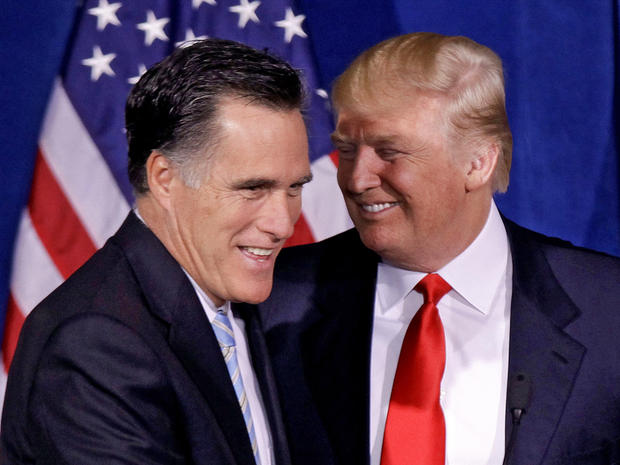For Obama and Romney, every (wealthy) town counts
News Analysis
(CBS News) On Monday, presumptive Republican presidential nominee Mitt Romney announced a swing state bus tour designed to showcase his commitment to "the everyday concerns of the American people." The implicit message of the "Every Town Counts" bus tour: President Obama may be ignoring small-town Americans facing economic hardship, but I'm focused on their plight.
Mr. Obama, meanwhile, has stressed that he isn't focused on helping the wealthy - among them those he once called "fat cat bankers" - arguing that his primary concern is those Americans just trying to get by. "In this country, prosperity has never trickled down from the wealthy few," he said in April. "Prosperity has always come from the bottom up, from a strong and growing middle class."
Yet for two men who profess to be focused on average Americans, the two major party candidates for president spend an awful lot of their time with rich people.
Mr. Obama is expected to raise at least $3.6 million at six fundraisers in Baltimore and Philadelphia today, among them two $40,000 per person "campaign roundtables." CBS News White House correspondent Mark Knoller reports that Mr. Obama will, by day's end, have done 160 fundraisers since filing for re-election last April. That includes attending fundraisers on roughly one third of weekdays over the past month. While some of these events have been relatively low cost to attend - though $250 per person is hardly pocket change for the average American - many have required donations of $10,000 or more, particularly for those seeking a brief moment with the president.
Romney, who raised about $3 million during high-dollar fundraisers last night in Atlanta, will host campaign events in Florida today where ticket range from $2,500 to $50,000, an official told CNN. The Romney campaign often keeps its fundraisers off its public schedule, so any accounting of his fundraising activities will be incomplete. But each week brings plenty of new examples to point to. The "Romney Victory" committee's latest national finance events schedule, obtained by Politico, shows 16 fundraising events currently planned over the next month, including stops in The Hamptons, Aspen and Jackson Hole. As The Salt Lake Tribune first reported, Romney has invited high-dollar donors to an upcoming daylong retreat in Deer Valley later this month.
Both candidates have held events with wealthy celebrities like George Clooney (who supports Mr. Obama) and Donald Trump (who supports Romney), neither of whom would seem to have much insight into the plight of average Americans. They both offer perks to their biggest donors like discussing political strategy or sharing a dinner with them. All the fundraising activity means that Mr. Obama and his challenger spend a significant portion of their time with wealthy donors in the richest areas of the country instead of with the more typical Americans that Romney plans to spotlight on his bus tour. It's a reality that was underlined recently when the Obama campaign released a video featuring Vogue Editor Anna Wintour discussing a fundraising dinner she is co-hosting with actress Sarah Jessica Parker - on the same day that Americans learned of a disappointing jobs report which showed the unemployment rate ticking up to 8.2 percent.
It's only fair to point out that, in the modern campaign era, the candidates have little choice but to spend a significant chunk of their time courting wealthy donors. The amount of money now flowing through politics is staggering, and the candidates need to maintain a tireless fundraising pace to keep up with the competition. In May alone, Romney's camp raised $76.8 million along with the Republican National Committee, while the Obama team and the Democratic National Committee raised $60 million. Between the candidates themselves and the outside groups empowered to influence elections by the Supreme Court, more than $2 billion is expected to be spent on the 2012 campaign, making a mockery of the once-heralded public funding system that Mr. Obama rejected in the 2008 cycle, when he raised $750 million. While the campaigns like to stress how many small donors contribute to their campaigns, they spend much of their time appealing to the wealthy and connected "bundlers" they depend on for large contributions.
The candidates do sometimes take time to visit factories and other venues, or hold town hall events, where they come in brief contact with average Americans. But such visits are often book-ended by fundraisers, and overall both men appear to get far more exposure to the tiny subset of Americans at the top of the economic spectrum. The candidates themselves - one a multi-millionaire businessman and the other an incumbent president - would surely argue they can maintain their perspective despite the bubble they often find themselves in. They'd say that their rivals are wrong when they cast them as out of touch, arguing that they can still get a feel for the problems facing struggling Americans. But it's hard not to wonder just how well they can do so when on any given day they are far more likely to find themselves inside a Ritz-Carlton than a Wal-Mart.
